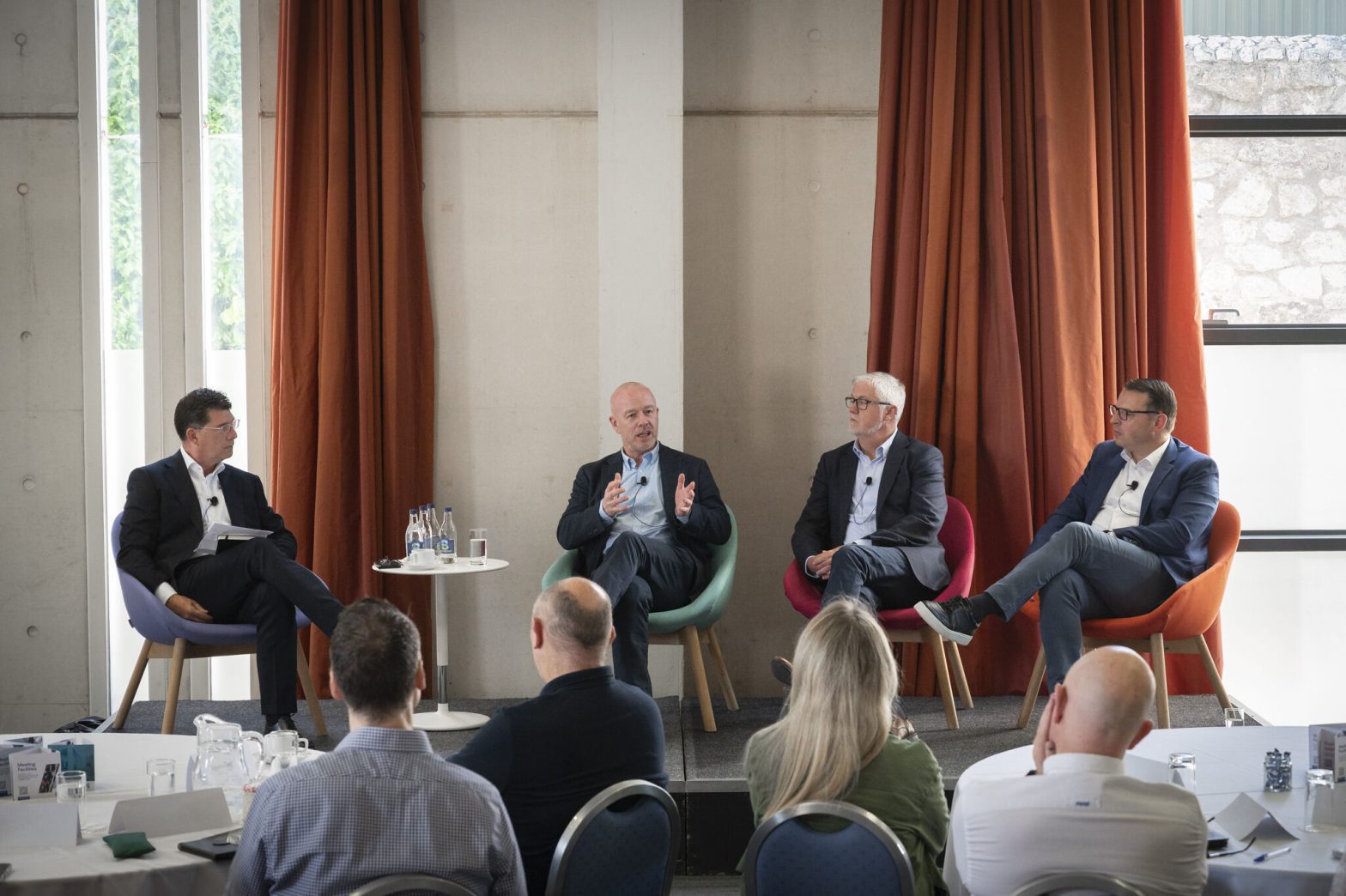Event Insights: Creative Problem Solving with Morgan McKeagney
By IMI | 30th October 2024
With so much change happening in the world at the moment, there’s never been a more important time to embrace creative problem solving (CPS).
IMI recently welcomed Morgan McKeagney to host a webinar on creative problem solving and how to unlock your latent creativity. Morgan took IMI members through some case studies, spoke about problem-solving techniques, and gave some insights into getting comfortable with change.
Morgan kicked off with a story about a leading airline leasing company. In quick succession, three tumultuous events struck this successful business. First, on the 29th October 2018, a next-generation Boeing 737 Max airplane crashed in Africa, killing 157 people. This led to the 737 Max being indefinitely grounded worldwide. The company had several Max’s on order. In 2020, Covid hit, resulting in the grounding of all their clients’ fleets. Finally, in 2022, Russia invaded Ukraine, leading to several of the company’s planes being stuck in Russia. All of this just goes to show how unpredictable our world is.
Which leads us to the concept of VUCA, something that many people may have come across already. VUCA stands for Volatile, Unpredictable, Complex, Ambiguous. Change is happening so fast and in so many different directions, that we’re constantly in a state of being unable to predict what happens next, or manage in advance.
To take Artificial Intelligence as an example, even as little as 12 months ago, Morgan himself had hardly any knowledge on the topic. While now, it dominates conversations across industries. AI could – in theory – end up being even more transformative than the Industrial Revolution.
Creative problem solving originated from the visionary mind of Alex F. Osborn, often referred to as the granddaddy of brainstorming. By engaging in CPS, we dedicate ourselves to understanding problems deeply, generating a multitude of ideas, testing and developing those ideas, and ultimately implementing effective solutions. The goal is to have a real impact and produce meaningful results, says Morgan.
A key principle of creative problem solving involves employing divergent and convergent thinking. Divergent thinking encourages us to explore diverse perspectives and generate a wide range of ideas. By casting a broad net around the problem, we can uncover new insights and possibilities. Convergent thinking, on the other hand, involves analysing and considering the ideas generated, to identify patterns and identify the best solutions or expressions of the problem.
One fundamental aspect of CPS is the shift from making statements to asking questions. By reframing a problem as a question, we open ourselves to a multitude of alternative solutions. Morgan gave the example of Brexit to illustrate this point. Instead of assuming that all of the UK’s problems were being caused by immigrants and the EU, they could have asked “How might we revitalise our country?” This change in mindset fosters creative thinking and encourages exploration beyond the obvious, and may have avoided some of the negative consequences that arose from Brexit.
It has been said that the best way to get a good idea, is to get a lot of ideas. Ideation is a crucial component of CPS, where individuals come together to generate and build upon a multitude of ideas. Picasso famously stated that good artists copy, while great artists steal, emphasising the importance of building and combining ideas from various sources.
Morgan told attendees about how developing and refining ideas is a critical stage in the creative problem-solving process. It involves seeking diverse perspectives, incorporating external input, and making solutions tangible through prototyping. The proverb “a prototype is worth a thousand words” highlights the significance of creating tangible representations of ideas. By testing, validating, and refining our solutions based on feedback, we can continuously improve and adapt our approach.
Implementing creative problem-solving approaches can face challenges such as lip service, fear, risk aversion, and resistance to change. Many CEOs and leaders are hesitant to embrace innovation due to perceived high costs and risks. However, embracing change and innovation is essential in a rapidly evolving world. It requires leaders to align their actions with their words and foster a culture that encourages exploration, experimentation, and learning.
As playwright George Bernard Shaw put it, “We don’t stop playing because we get old, we get old because we stop playing.” To thrive in a foggy, uncertain world, we must develop comfort with ambiguity and uncertainty. Rather than denying the need for change, we should play it safe, embrace the unknown, and adapt to the ever-changing landscape. Tomorrow belongs to those who can envision it and respond with agility.
IMI Corporate Members get access to regular in-person and virtual events. Find out more about IMI membership.
FAQ
How can leaders effectively embrace and implement creative problem-solving techniques to navigate the complexities of a VUCA (Volatile, Unpredictable, Complex, Ambiguous) world?
Leaders can embrace CPS by fostering a culture that values divergent thinking and encourages teams to explore a wide range of ideas, followed by convergent thinking to analyze and refine those ideas. This approach not only empowers teams to tackle challenges innovatively but also builds resilience against rapid changes in the business environment.
What strategies can organizations adopt to overcome resistance to change and cultivate an environment that supports experimentation and innovation?
Organizations can overcome resistance by aligning leadership actions with their words, clearly communicating the benefits of innovation, and creating safe spaces for employees to experiment. Leaders should encourage a mindset that views failures as learning opportunities, thereby promoting a culture of exploration and creativity.
In what ways can reframing problems as questions enhance creative thinking and lead to more effective solutions within organizations?
Reframing problems as questions invites diverse perspectives and encourages teams to think beyond conventional solutions. By shifting from statements to inquiry, leaders can unlock creative potential and foster a collaborative atmosphere where team members feel empowered to explore innovative approaches to complex challenges.



